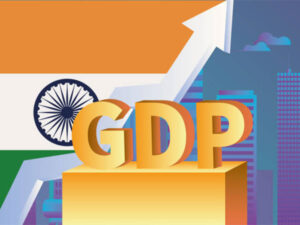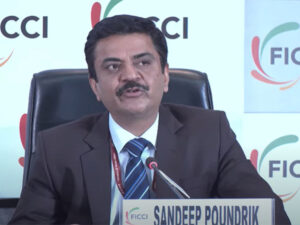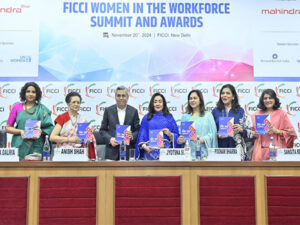
New Delhi [India], October 5 (ANI): An immediate refund of Goods and Services Tax (GST) can increase the overall GDP by 2 per cent, exports by 7 per cent, aggregate imports by 6 per cent and overall employment by nearly 4 per cent, according to a new study by Export-Import Bank of India (India Exim Bank).
The effects of immediate refund of GST on individual sectors are much larger with exports from the six identified sectors expected to register double-digit growth, it said.
“While the government has been working to identify policies to promote exports and build a better operational environment, there is need for greater focus on monitoring and addressing glitches which prevent the successful implementation of these policies,” said the study titled ‘Domestic Constraints for Exports in Select Sectors’.
It also provides certain specific priority areas to focus for each of the identified sectors which are low-hanging fruits for improving the operational efficiency of exporters. Medium to long term interventions for improving the policy landscape for manufacturing and exports have also been recommended.
The study analyses current domestic policy constraints faced by Indian exporters in select sectors — gems and jewellery, auto and auto-components, electronics with a focus on mobile phones, textiles and clothing, and pharmaceuticals.
It highlights common areas of concern for exporters across various sectors, including the need for direct government intervention to reduce costs at ports; attractive production-oriented incentives, particularly in light of the imminent phase-out of Merchandise Exports from India Scheme (MEIS); addressing procedural delays in approvals and refunds as well as custom clearances; expediting GST refunds and duty drawback refunds to improve the manufacturing landscape.
The study was released by Minister of Commerce and Industry Piyush Goyal during an interactive webinar organised by India Exim Bank on October 3. He highlighted the efforts taken by the government for incentivising exports, boosting domestic manufacturing and enhancing the competitiveness of Indian exporters.
David Rasquinha, Managing Director of India Exim Bank said while the pandemic has significantly impacted international trade, it has also brought forth opportunities for countries like India to enhance global value chain integration as major economies seek alternative suppliers to build resilient supply chains.
He said the strategies recommended in the study can help encourage foreign investments for global value chain integration and build a competitive and resilient exports sector. (ANI)


















